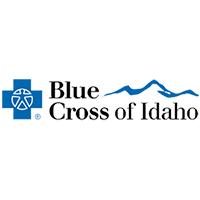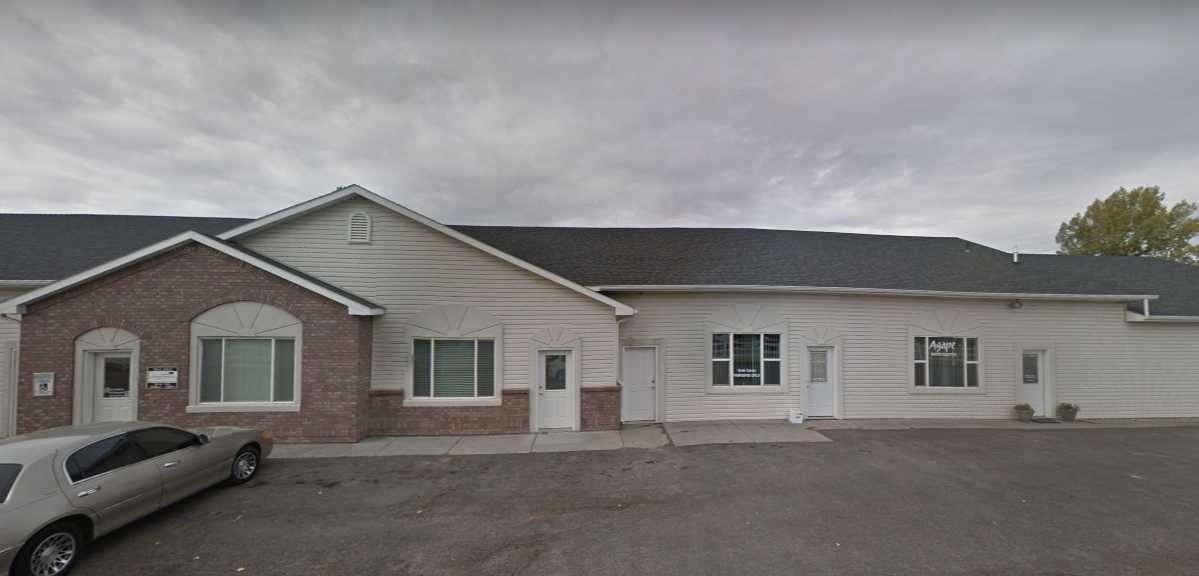This facility is incredible. The staff is awesome. It’s a safe place to be, they help me a lot to renew my life.
About Brick House Recovery
They accept policies from most major insurance providers including Idaho Medicaid, and BPA. They also accept various self pay options.
This facility takes a faith-based approach to care, but they also have a host of evidence based strategies they will apply to your train program. When you start treatment where you’ll undergo an initial evaluation and the right treatment plan will be created for you.
Depending on your circumstances, medication assisted treatment (MAT) may be incorporated into your recovery plan. There are structured clinical groups and weekly individual therapy sessions. These therapy sessions will be used alongside take home self guided workbook assignments.
You’ll work closely with an individualized recovery coach. You’ll also have the support of peers through structured 12 Step recovery programs. There is also fellowship where you’ll build a sense of community. This will also allow you to build critical life skills such as time management, communication improvement, and overall relapse prevention strategies.
The program also offers additional workshops. There are goal setting courses, fitness regimens, and nutrition programs that will improve your overall sense of self and motivation. You’ll build up leadership skills while being more independent and healthier.
This location has what the staff describes as a selective and culturally protective environment. This will allow you access to quality care that is designed to help you succeed on your path to recovery.
Latest Reviews
Rehab Score
Gallery
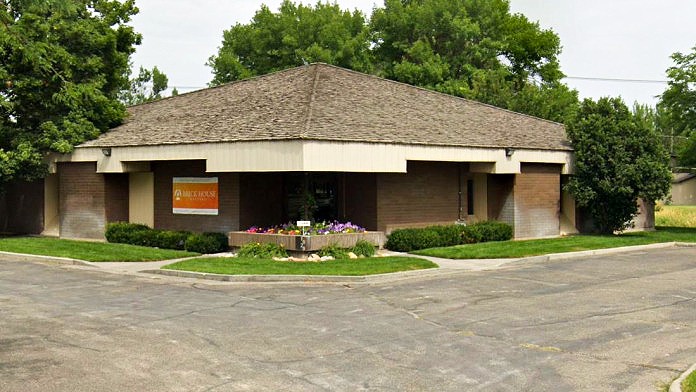
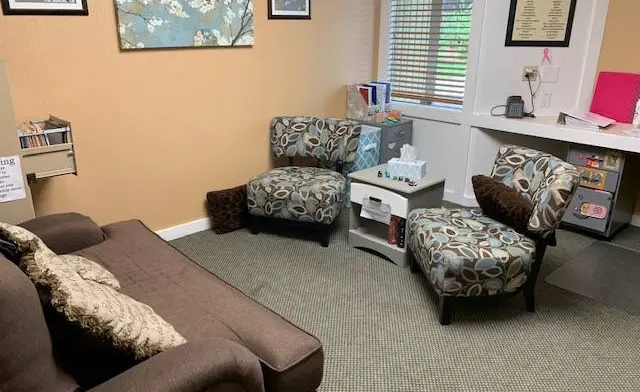
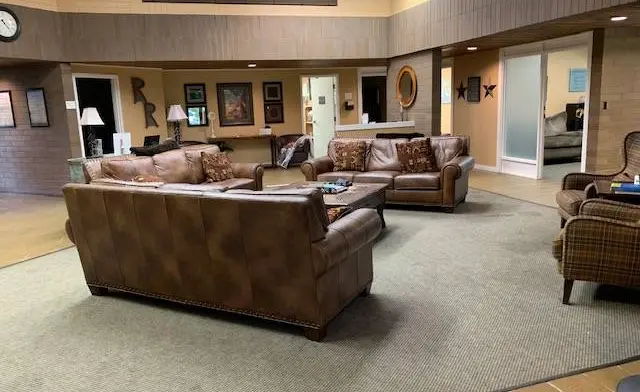
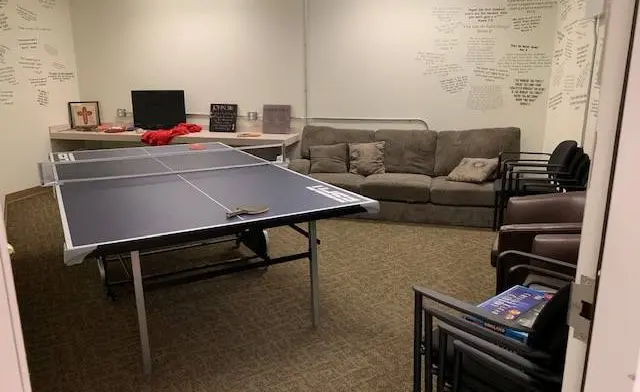
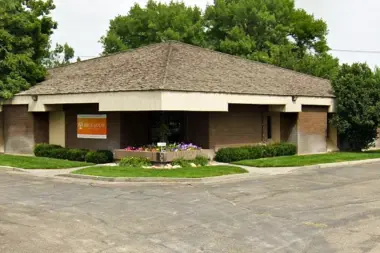
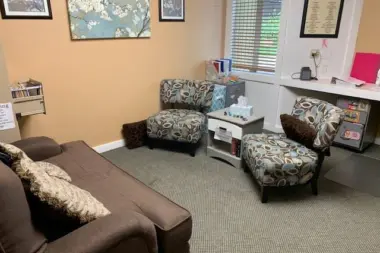
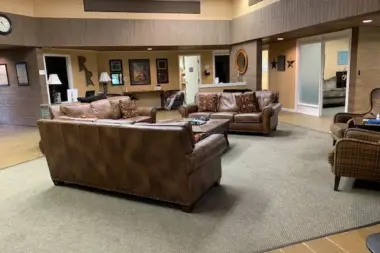
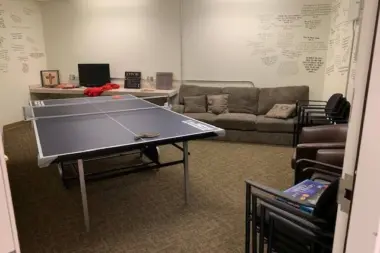
Accepted Insurance







Other Forms of Payment
Private insurance refers to any kind of healthcare coverage that isn't from the state or federal government. This includes individual and family plans offered by an employer or purchased from the Insurance Marketplace. Every plan will have different requirements and out of pocket costs so be sure to get the full details before you start treatment.
Self-pay involves paying for treatment out of your own pocket. You can use savings or credit, get a personal loan, or receive help from family and friends to fund your treatment. If you don't have insurance or your insurance plan doesn't cover a specific program, self-pay can help ensure you still get the care you need.
Financial aid can take many forms. Centers may have grants or scholarships available to clients who meet eligibility requirements. Programs that receive SAMHSA grants may have financial aid available for those who need treatment as well. Grants and scholarships can help you pai for treatment without having to repay.
Medicaid is a state based program that helps lower-income individuals and families pay for healthcare. Medicaid covers addiction treatment so those enrolled can use their coverage to pay for rehab. When a program accepts Medicaid the client often pays very little or nothing out of their own pocket.
Addiction Treatments
Levels of Care
Outpatient Programs (OP) are for those seeking mental rehab or drug rehab, but who also stay at home every night. The main difference between outpatient treatment (OP) and intensive outpatient treatment (IOP) lies in the amount of hours the patient spends at the facility. Most of the time an outpatient program is designed for someone who has completed an inpatient stay and is looking to continue their growth in recovery. Outpatient is not meant to be the starting point, it is commonly referred to as aftercare.
Intensive Outpatient Programs (IOP) are for those who want or need a very structured treatment program but who also wish to live at home and continue with certain responsibilities (such as work or school). IOP substance abuse treatment programs vary in duration and intensity, and certain outpatient rehab centers will offer individualized treatment programs.
The mission of Renaissance Ranch Sober Living is to give individuals in recovery the opportunity to participate in treatment while adjusting to living, working, and attending AA meetings. This is why Renaissance Ranch is committed to offering affordable, spacious, good quality housing in a home-like setting. Ther top priority is to assure that each house is in harmony and provides a serene, sober environment that is conducive to successful recovery. This allows people from out of state to come and participate in treatment at an outpatient level rather than at a residential facility. This treatment model, known as the “Florida model,” is a highly effective form of treatment, and for that reason many addiction treatment facilities have adopted it.
12-step programs are addiction recovery models based on Alcoholics Anonymous (AA). A number of substance abuse programs (including some drug and alcohol rehab centers) use the 12 steps as a basis for treatment. Beginning steps involve admitting powerlessness over the addiction and creating a spiritual basis for recovery. Middle steps including making direct amends to those who've been hurt by the addiction, and the final step is to assist others in addiction recovery in the same way. 12-Step offshoots including Narcotics Anonymous (NA), Cocaine Anonymous (CA), Dual Recovery Anonymous (DRA), Sex and Love Addicts Anonymous (SLAA) and Gamblers Anonymous (GA).
A partial hospitalization program (PHP) is a short-term form of intensive rehab, usually for those with acute symptoms that are hard to manage but don’t require 24-hour care. PHPs have structured programming (i.e. individual and/or group therapy), and usually meet 3-5 days a week for around 6 hours (i.e. 9am-3m). Some PHPs are residential (patients sleep on site) and some are not, so patients sleep at home. PHPs can last from 1-6 months, and some offer transportation and meals.
Treatments
The goal of treatment for alcoholism is abstinence. Those with poor social support, poor motivation, or psychiatric disorders tend to relapse within a few years of treatment. For these people, success is measured by longer periods of abstinence, reduced use of alcohol, better health, and improved social functioning. Recovery and Maintenance are usually based on 12 step programs and AA meetings.
Drug rehab in Idaho provides treatment for addiction to drugs. It usually includes a combination of treatment methods that can involve counseling, medication, and a variety of evidence-based therapies. Programs are designed to help individuals manage their substance use disorder long-term.
Many of those suffering from addiction also suffer from mental or emotional illnesses like schizophrenia, bipolar disorder, depression, or anxiety disorders. Rehab and other substance abuse facilities treating those with a dual diagnosis or co-occurring disorder administer psychiatric treatment to address the person's mental health issue in addition to drug and alcohol rehabilitation.
Substance rehabs focus on helping individuals recover from substance abuse, including alcohol and drug addiction (both illegal and prescription drugs). They often include the opportunity to engage in both individual as well as group therapy.
Programs
Adult rehab programs include therapies tailored to each client's specific needs, goals, and recovery progress. They are tailored to the specific challenges adult clients may face, including family and work pressures and commitments. From inpatient and residential treatment to various levels of outpatient services, there are many options available. Some facilities also help adults work through co-occurring conditions, like anxiety, that can accompany addiction.
Young adulthood can be an exciting, yet difficult, time of transition. Individuals in their late teens to mid-20s face unique stressors related to school, jobs, families, and social circles, which can lead to a rise in substance use. Rehab centers with dedicated young adult programs will include activities and amenities that cater to this age group, with an emphasis on specialized counseling, peer socialization, and ongoing aftercare.
Clinical Services
The main function of cognitive behavioral therapy is to catch negative thought patterns and redirect them into more constructive and helpful avenues. Cognitive behavioral therapy was originally developed to treat depression, because it’s a way to get people out of patterns of self-reprimanding and harmful self-talk that they tend towards when they’re depressed. Now, it’s used for many things, especially to change behavior. Cognitive therapy is based on a specific model that states that their perception of a situation determines how they feel and react.
Experiential therapy can refer to numerous methods that enable a patient to come to a greater understanding of their patterns, thoughts, emotions, and needs through creative actions, projects, and relationships. Different patients will have different preferences. One patient might feel highly motivated to pursue musical therapy as a means of expressing themselves and decoding their own behavior and dealing with stress. Another patient might have an affinity with animals and find the best fulfilment and breakthroughs in equine or pet therapy. They give their patients a variety of resources and techniques for experiential therapy so that they can all discover the advantages of hands-on therapy.
Research clearly demonstrates that recovery is far more successful and sustainable when loved ones like family members participate in rehab and substance abuse treatment. Genetic factors may be at play when it comes to drug and alcohol addiction, as well as mental health issues. Family dynamics often play a critical role in addiction triggers, and if properly educated, family members can be a strong source of support when it comes to rehabilitation. Their philosophy involves bringing those suffering from addiction and the family together to rediscover the truth behind what healthy relationships are all about. Their goal is to treat the underlying causes of addiction, while addressing the wider needs of the whole family, giving us the best hope at a life-long recovery from this horrible affliction.
Group therapy is any therapeutic work that happens in a group (not one-on-one). There are a number of different group therapy modalities, including support groups, experiential therapy, psycho-education, and more. Group therapy involves treatment as well as processing interaction between group members.
In individual therapy, a patient meets one-on-one with a trained psychologist or counselor. Therapy is a pivotal part of effective substance abuse treatment, as it often covers root causes of addiction, including challenges faced by the patient in their social, family, and work/school life.
Life skills trainings involve all the skills a person must have in order to function successfully in the world. These include time management, career guidance, money management, and effective communication. Truly successful addiction recovery is based on the ability to not only live substance-free, but to thrive. Life skills teaches the practical necessities of functioning in society, which sets clients up for success in life, and therefore sobriety.
Motivational Interviewing (MI) is a clinical approach to helping people with substance abuse issues and other conditions shift behavior in positive ways. It is more goal-oriented than traditional psychotherapy, as MI counselors directly attempt to get clients to consider making behavioral change (rather than wait for them to come to conclusions themselves). Its primary purpose is to resolve ambivalence and help clients become able to make healthy choices freely.
The effects of trauma can be long-lasting and widespread. Trauma causes extreme distress, and we often suffer long-term effects as our bodies and minds try to process the situation. When it comes to trauma and abuse survival, counseling must be handled with care and sensitivity so that patients are able to deal with trauma on their own terms and timeline. Often, the goal of trauma counseling is to help the patient find that “therapeutic window” wherein they can review the traumatic memories without becoming overwhelmed by their personal response, or too far dissociated to positively integrate the memory and information into their personal identity and history. With a modified emotional response to the memories, patients are eventually able to heal and accept.
Amenities
-
Private Setting
Staff & Accreditations
Staff
Jason Coombs
President & Founder
Shayla Ward, LCPC
CEO & Chief Clinical Officer
Justin Haight
Director of Business Development
Amy Peden
Clinical Director
Chris Brayton, LCSW
Clinical Director
Accreditations

The Commission on Accreditation of Rehabilitation Facilities (CARF) is a non-profit organization that specifically accredits rehab organizations. Founded in 1966, CARF's, mission is to help service providers like rehab facilities maintain high standards of care.
CARF Accreditation: Yes
Contact Information
1020 Landbank Street
Idaho Falls, ID 83402
